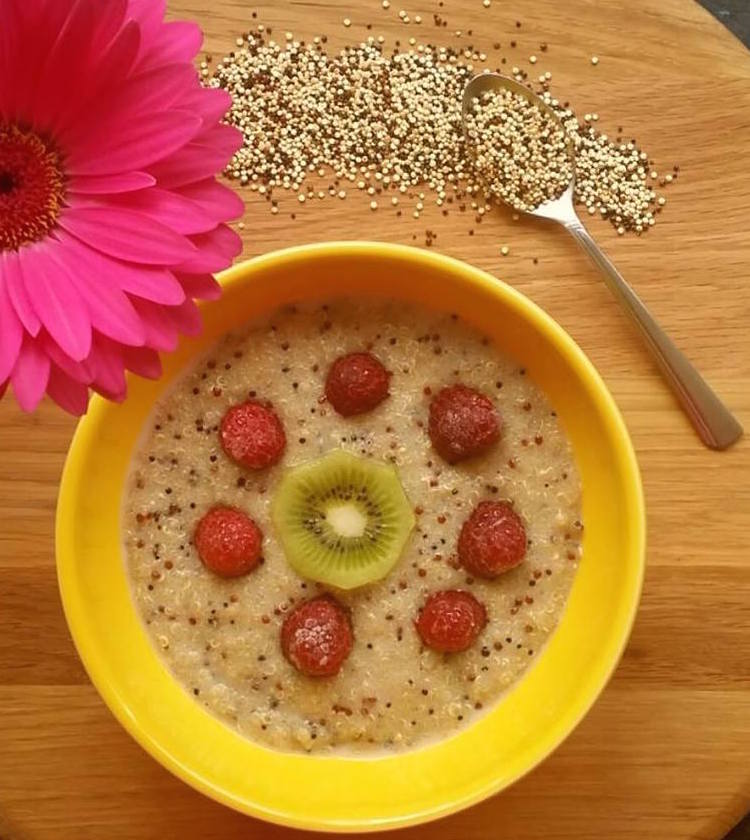
Quinoa and Amaranth Porridge
Quinoa and Amaranth Porridge
Suitable for GLUTEN FREE diets
This Quinoa and Amaranth recipe makes enough for several servings. You can keep the left overs in the fridge for the next day. All you need to do is add your favourite milk and top with fruit of your choice.
Serves 4
Ingredients
- 1 cup (200g) amaranth, rinsed
- 1/2 cup (100g) quinoa, rinsed
- 2 cups (480ml) + 1 cup water (240ml)
- 1/2 cup (120ml) plant-based milk
- 1 teaspoon of coconut oil
- Topping: berries of your choice, cacao nibs, seeds etc…
Method
- Rinse the amaranth and quinoa. Amaranth seeds are very small. You will need a very fine sieve.
- In a small saucepan, add the amaranth and 2 cups of water. Bring to a boil, then turn down the heat to low. Simmer, stirring occasionally, uncovered for 20 minutes.
- Add the quinoa and another cup of water. Cook for another 5 minutes.
- Put a lid on the saucepan and let the porridge rest for 5 minutes.
- In a bowl, put 3 or 4 tablespoons of the porridge, add the coconut oil and the milk. Finish off with your favourite topping and enjoy!
Both quinoa and amaranth are gluten free and are very rich in protein. This breakfast will keep you full until lunchtime.
Nutrition tips: Why it is important to eat breakfast (even a very small one)
It is so easy to skip breakfast. If you have a large dinner, you may not feel hungry in the morning. However, if you eat a filling breakfast, you will find that you may not feel like snacking during the day. This is a really effective way to manage weight and energy levels. Having breakfast prior to exercise can have a positive influence on some aspects of mood and results in a better appetite control after exercise particularly for women according to this study.
Other studies show that when kids skip breakfast, they can end up going for long periods of time without food and this period of semi-starvation can create a lot of physical, intellectual, and behavioural problems for them. So if you have a family, it is key for everyone to have at least a small breakfast. Aim for wholegrain cereals which have no added sugar. Including protein in your breakfast will keep you full for longer. Eggs are a good options as well as smoothies with protein powders added in. I particularly recommend this one from Lifefood which does not contain any sugar.
If you are concerned about your eating habits and wish to get some help, get in touch with a nutritional therapist. A personalised nutritional plan can help you choose the right food for you and will help you feel better and lighter.

